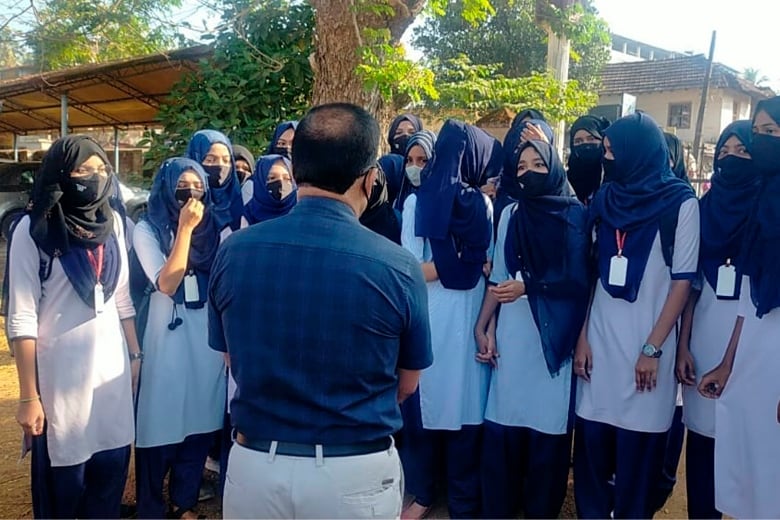No religious clothes until hijab row settled, India court tells students | CBC News
A court in a southern Indian state told students on Thursday not to wear any religious clothing until it delivers a verdict on petitions seeking to overturn a ban on hijabs, headscarves worn by Muslim women.
The court in Karnataka state is considering petitions filed by students challenging a ban on hijabs that some schools have implemented in recent weeks.
“We will pass an order. But till the matter is resolved, no student should insist on wearing religious dress,” the Press Trust of India news agency quoted Chief Justice Ritu Raj Awasthi as saying.
The court also directed the state to reopen schools and colleges, which the chief minister had shut for three days as protests over the ban escalated earlier this week.
The issue grabbed headlines last month when a government-run school in Karnataka’s Udupi district barred students wearing hijabs from entering classrooms, triggering protests outside the school gate. More schools in the state followed with similar bans, forcing the state’s top court to intervene.

The uneasy standoff has raised fears among Muslim students who say they are being deprived of their religious rights in the Hindu-majority nation. On Monday, hundreds of students and parents took to the streets to protest the restriction.
The dispute in Karnataka has set off protests elsewhere in India. A number of demonstrators were detained in the capital, New Delhi, on Thursday, and students and activists have also marched in cities including Hyderabad and Kolkata in recent days.
It also captured attention in neighbouring Muslim-majority Pakistan.
“Depriving Muslim girls of an education is a grave violation of fundamental human rights,” its foreign minister, Shah Mahmood Qureshi, tweeted on Wednesday, calling the situation “absolutely oppressive.”
Nobel Peace Prize laureate and education activist Malala Yousafzai also condemned the ban.
“Refusing to let girls to go to school in their hijabs is horrifying,” the 24-year-old Pakistani human rights campaigner tweeted.

For many Muslim women, the hijab is part of their faith and a way to maintain modesty. It has been a source of controversy for decades in some Western countries, particularly in France, which in 2004 banned them from being worn in public schools.
In India, where Muslims make up about 14 per cent of the country’s almost 1.4 billion people, they are not banned or restricted in public places and are a common sight.
Some rights activists have voiced concerns that the bans could increase Islamophobia. Violence and hate speech against Muslims have increased under Prime Minister Narendra Modi’s governing Hindu nationalist party, which also governs Karnataka state.
For all the latest World News Click Here
For the latest news and updates, follow us on Google News.

